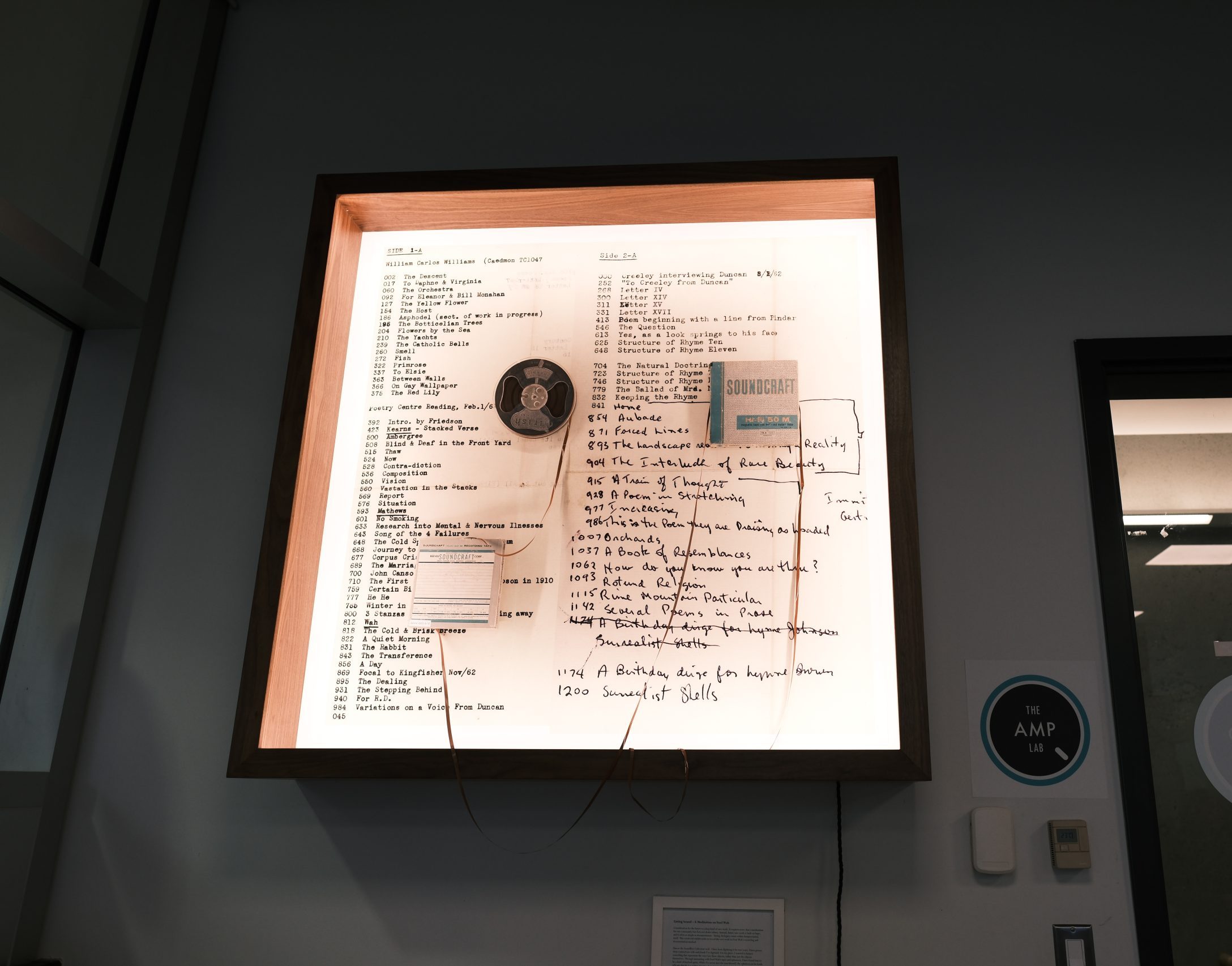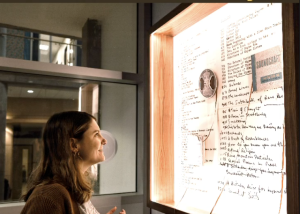
When I was first asked to curate the light box in the AMP Lab at UBCO, my reaction was ‘no’.
I am not an artist*.
*My supervisor, Dr. Karis Shearer, reminded me that curation does not require one to be an artist, but that it can be extended into the artistic. For me, this still felt too close.
I am a natural organizer, an inherent cataloguer, a seeker of order in the chaos. The tendency to organize and make neat can be found in all aspects of me. In my home, where I work against a barrage of non-organizers. In my academic writing, where I spend so much time contextualizing and gathering evidence that I sometimes forget to make assertions. Even in my performance practice; stand-up comedy, where I take the chaos of my life and make it small and digestible:
Context, punchline.
Easy to manage. Short. Complete. But asking: Do you know what I mean? Is this normal? Is this human?
When I decided to pursue a masters, my tendency towards order made archives the obvious choice. I loved my program – there is something inherently connected about folks who tend towards organization, who want rules to follow, but the main rule, I was surprised to learn, was this: Archiving is intuitive. No two archivists will arrange a fonds in exactly the same way. Looking at it this way, I had to reconsider my position on curation. The purposeful placement of objects, the intuitive decision making – perhaps I am not an artist, but I can curate, if curation means making intuitive leaps.
I know the SoundBox Collection well – I have been digitizing it for two years. Currently, I am working on Fred Wah’s fonds, and when given the choice of what aspects of our collection to highlight with my light box piece, he stood out. Within the AMP Lab, we often feature sound. For my piece, however, I wanted to feature something that also represents me. Through interacting with Fred Wah’s tapes and ephemera, I have found him to be a kind of kindred spirit. While I’ve never met the man himself, his fonds tells me that he is a seeker of order. Sometimes, the logic behind archiving and cataloguing is not about rigidity, so much as a way of being understood. Writing lists, making clear what is on a magnetic reel through description, implies hope for the future. These practices, which may seem innocuous, imply that others are and will be interacting with your recordings. More than just telling us what is hidden on an audio tape, it also says a lot about the creator. You will be understood through the order you’ve created.
Like comedy. Like poetry.
As I envision my curation, I too hope to be understood. I hope that those who view it can see what I see in Fred Wah’s ephemera.

Written by Sarah Cipes, PhD Student and SpokenWeb GRA. November 24, 2023.